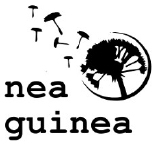What is Permaculture?
Permaculture deals with the creation of consciously designed ecosystems in which human activity can be integrated and emerge as a regenerative and stabilising factor. By studying natural ecosystems, permaculture develops intellectual tools and practical skills that enable the creation of sustainable production systems that support and enhance natural complexity and diversity and meet the basic needs of the people who manage them by providing abundant multiple harvests.
The word permaculture comes from the fusion of the words permanent and agriculture, emphasizing the design of sustainable agricultural production systems. In reality, however, the system of values and principles that underpin permaculture can be used to reshape human activity at all levels, drawing inspiration from the patterns that govern the functioning of natural systems and the interrelationships that develop between their constituent elements. Thus permaculture can be given a broader definition as it results from the fusion of the words permanent culture.
Through the design of sustainable systems, permaculture promotes the development of increasingly meaningful healthy connections with the natural environment and the people around us, with the aim of enhancing resilience, adaptability and self-reliance of both individuals and communities, in an era increasingly characterised by multiple systemic crises and chaotic changes.
Permaculture draws from the sciences of nature study (e.g. biology, geology, geography, meteorology) and incorporates the basic ideas of sustainable farming practices (e.g. natural and organic farming). It is also often combined with other planning methods and systems such as Key Line planning, Holistic Management and Regenerative Agriculture. The methods and practices used to apply permaculture in practice show great diversity, corresponding to different climatic and cultural conditions and the availability of resources.

